Interview: Umami Mart
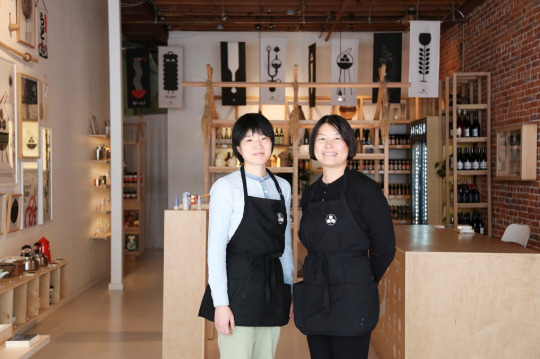
I first met Yoko Kumano and Kayoko Akabori of Umami Mart when they first interviewed us at Ken Ken Ramen about 5 years ago. Over the years the girls have evolved their culinary blog into a retail venture covering homewares, culinary items and art. They’ve created a beautiful authentic and special store that is well curated and creates a depth of interest in high quality goods from Japan and the world.
Over some beers and cocktails at Black Sands I learned more about their evolution, their thoughts on retail projects that inspire them, the state of Japan and other culinary explorations. Fun and inspiring.
You guys started first started with the Umami Mart Blog - What motivated you guys to jump forward with it and turn into to a retail project?
Well we started the blog in 2007, Kayoko was in Brooklyn, and I was in Tokyo at the time. We moved back to California in 2010. We were paying hosting fees and we explored ways to keep the blog project going without having to sell advertising. We didn’t want to go there. We didn’t want to get into a model where we needed to survive on product placement or have to change the content due to editorial advertising pressure.
So we started to explore ways to bring products that we wanted to see here, and we also asked our team of writers what they wanted imported from Japan that wasn’t available. So we started really small, importing just 10 types of items; a case each and selling them online.
Were you guys aiming to be a retail store from the beginning?
No, no in the beginning we were just an online project, but we did get a sellers permit, and started to organize a bit. About a year into the project definitely the cocktail and bar wares really started to pick up and we started receiving orders from bartenders and restaurants. We started importing more and it started to snowball.
We were very small, operating out of small corner of my apartment and we needed to outgrow that model. So in 2011/2 we started looking for a storage space or a space to have a showroom. We thought it would be cool to have somewhere to meet with people. At the time we heard about pop up hood - an Oakland project where they were giving out 6 months free rent to new businesses. We found the space and started importing more and more products from Japan and filled it accordingly. The timing was perfect.
Umami Mart has a great visual and store experience. Who did the original creative direction and store design?
Anders Arhoj of Studio Arhoj - our friend from Copenhagen. I met Anders in Tokyo where we worked at the same gallery space. He moved to Tokyo to study design and I met him there. He moved back to Copenhagen but we stayed in touch over the years. He contributed to the blog and when we got the retail space we asked him to help design the space. At the time he still hadn’t started his studio yet so he had time to help us visualize our space and create a unique space. We worked with DIY materials and tools. We rented tools from the tool library in Oakland and worked with him on creating the original space.
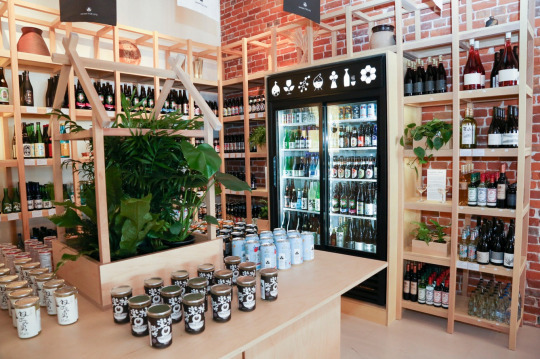
On your blog you guys write “we only work with friends” - tell me about that?
Basically we have to have a connection with the people we work with. We choose all the products, they have to be functional, they have to taste good. For the products they have to be products that we approve and use.
Friends is a general term for us is and means that we are directly in connection with the things we sell. Be it from the new ceramics Anders is working or local suppliers.
Also the friends thing comes down to this: If you can convince your friends that something is good, then it’s likely a good product. Likewise vice versa if our friends can convince us of something then usually it pans out. It’s a collaboration. We work like that. Me and Kayoko are friends and come up with a million ideas a day. Friends can balance bad ideas and help us weed out the best ones. Sometimes friends will tell us that something is bad and convince of that too. That’s the nice thing about that type of partnership. Our judgement is filtered and pitched by the same desire to be involved.
Plus life is so short, why would we work with non friends. If we don’t click with an idea, someone or something - if there is no connection then there is no desire to sell that product. We need to see eye to eye with our suppliers, clients and the people we work with.
Have there been any relationships that soured or gotten worse?
Of course. We take those times to learn. Usually it’s inevitable if the relationship is not going to work out and we take those opportunities to learn.
I’m curious about your buying strategy? At my past retail projects it was always hard to balance a personal desire toward a project and a direction to buy things that sell. You almost have to buy for what sells and be aware of personal biases and taste. Has this been an issue?
We’ve definitely had to learn that too. We learned through the years what doesn’t sell. Of course there are some products that we are so attached to and we sell carry them a bit. For example one of our original products, a beautiful tea pot from Japan we first opened the retail store with wasn’t the best commercial success. In fact no one buys it. We had to cut it. It’s heart breaking! We’re constantly evaluating and cutting things. We cut things don’t sell through and are learning more from business decisions.
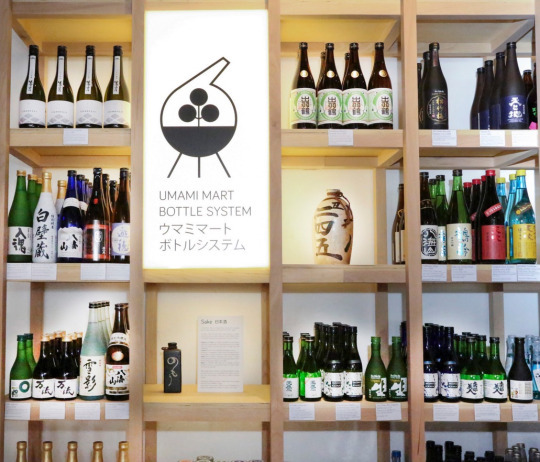
So what categories work best and what have been under performing?
Tea accessories were slow in the beginning. Tea wares is still hard. Coffee wares is hard too surprising. There can be some big hits but also some big failures. It’s still hard to tell.
What other retailers are you guys watching and being inspired by?
We love YamaYa - the liquor store. The store is just liquor and all things drink related - food, snacks, just anything that goes with drinking. I just think Japan has it down when it comes to drinking and they know what goes well with it. The store has perfect custom shelves for snacks and drinks. It’s just perfect. It’s not hip but it’s sort of like the BevMo of Japan but perfect and done well.
How about the store Don Quixote?
Ha. I love Don Quixote but they have too many SKUS. No focus. Ha but I love it.
I also look at Department Stores for inspiration. I’d love to have a mini department store. I love Dover Street Market. I love the idea of all of our favorite things under one roof.
I love stores with great energy. In Paris, Collete had this fun energy and retail power. It was awesome.
Oh another store that I love is Barneys. They have such a great and nice experience. Its good service, not sure if it’s commission based but I thought it was really great service.
We spend a lot of time on service. On the telephone, on the email. There is a lot of staff training with our staff for every part of our store. It’s a big part of Umami mart. We’re tight knit with our staff and making sure they know about the products we sell and being able to service our customers fully.
Were the original Japanese suppliers difficult to work with being a new retailer? Could you talk through some of the challenges you had? I know that it can be hard to work with many of the suppliers in Japan.
Working with Japanese suppliers, we’d ask for 100s of units and they wouldn’t sell to us. Makers would often tell us that products were reserved for the local market.
Japan requires so much time to build the relationship. We take a lot of energy to go to the countryside of Japan and meet with the makers.
Luckily we have a focused product buy that we sell so that’s allowed us to build more relations with the makers - be it our stainless steel homewares producers, the glass company etc. The fact that the companies are hard to work with us as enabled us to focus on our selection too.
We’re new in the game - it’s hard not having the buying power.
Likewise that extends here too, being small sometimes our local distributors won’t sell to us as they have older restaurant accounts that they need to supply too. We have a monthly sake program and its been hard sometimes to stock enough.
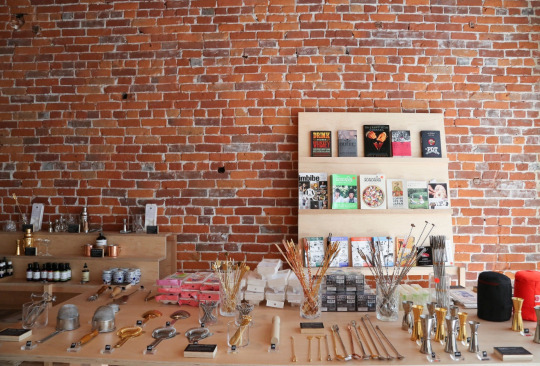
Let’s talk more generally about Japan. I’m feeling a bit that Japan is moving more insular. Just walking around I get a sense that companies are only looking at their own market, that makers are looking inward more. There is a lack of confidence about going worldwide? What do you guys think?
Yeah totally. The economy has been so weak for so long and people are turning inwards to nationalism. I’m a dual citizen and when I voted there were very few young people voting. With so many old people the population is static. A few years ago when the yen was so strong I thought we were going to have more people taking advantage of the strong yen and going abroad but that didn’t happen. So the issue is less about money but instead maybe a psychological issue in the culture.
I don’t what the solution is. Japan is a little bit of a dying flower. It’s beautiful, but it’s difficult.
There is a lot of security in Japan and I love that security but I think most people are convinced that they have reached a pinnacle of society and that is breeding compliancy. People are aware of that compliancy and its dangerous.
What do you guys think of Oakland?
I think Oakland is Dynamic. Very diverse. Its great. I love it. Totally hopping. It has a great energy.
After living in Tokyo, there is no real difference between Oakland and San Francisco. Tokyo is so loud, so dense, so many people, so comparing it to here you don’t get that same level of energy.
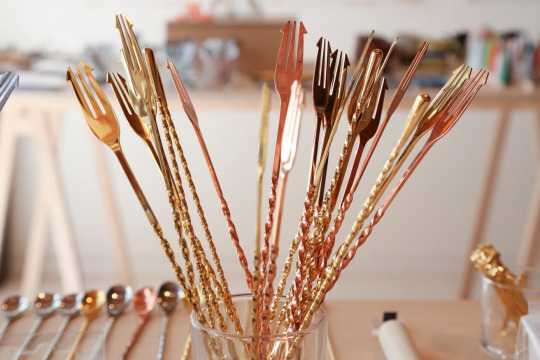
You guys go out a lot to eat. Let’s talk about tipping and restaurants?
Actually in philosophy I hate tips, but after what I’ve seen at restaurants who no longer require tips, the service has deteriorated - in America you just have to have tips. For whatever reasons its just doesn’t work. You need tips here. Service is a not a lifestyle here. It’s a secondary job. It’s not like Europe where there are career waiters. No people are waiters here when they want to pay the bills, make money while they work on another main project. Without tips, it’s hard for businesses to keep their staff. It just doesn’t work.
Waiters are used to a certain level of payment and if they aren’t making that they just leave. It’s hard to keep workers. Ideologically it makes sense to me. I hate tips. I think it’s false that the front of house think they work harder for tips than the back, but without tips, waiters just walk out and walk to somewhere they’ll make tips.
What’s next for Umami Mart?
There is a lot brewing. We’re thinking about expanding our alcohol selection for the store. Maybe another store. Maybe a restaurant! There are lots of ideas in the air.
Thanks!
UmamiMart
815 Broadway
Oakland, CA 94607
Tel: (510) 250-9559
All photos copyright Umami Mart / Vanesa Castaneda